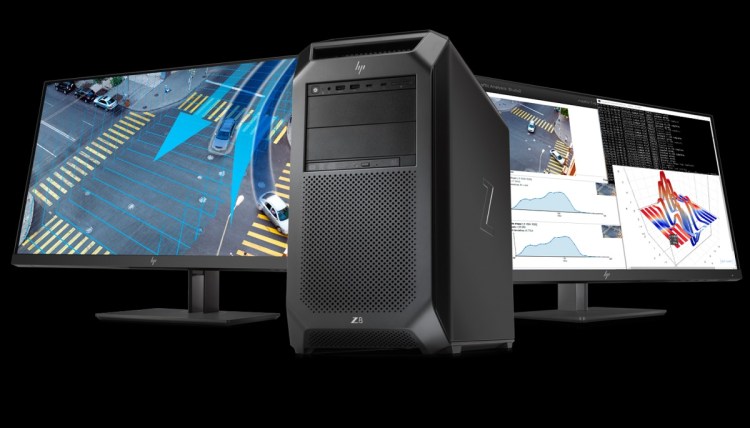Watch all the Transform 2020 sessions on-demand here.
At Nvidia’s GPU Technology Conference (GTC) in San Jose, California today, HP introduced its new HP Z8 workstation for machine learning development. The machine is based on Nvidia’s Quadro GV100 platform, the latest version of its Quadro graphics processing unit (GPU) for workstations.
The HP Z8 employs 32 gigabytes of high-bandwidth memory 2 (HBM2) and Tensor Cores to accelerate artificial intelligence applications. HP is also introducing the HP Z4 workstation, which has a different configuration for machine learning. The workstations are part of HP’s device-as-a-service offering, where you pay a monthly fee for a machine and effectively lease it over time.
With the new workstations, HP said developers will be able to get machine learning solutions to market sooner. HP also has a new HP ML Developers Portal, which includes access to AI software development tools.
“We’re on the cusp of a new era of innovation powered by machine learning technology that enables customers to analyze, predict and problem solve in ways never thought possible. Artificial intelligence will transform workflows and empower end users to make smarter decisions, more quickly, than ever before,” said Xavier Garcia, vice president and general manager of HP Z Workstations, in a statement. “HP’s latest solutions provide groundbreaking performance and scalability, offering the most powerful and comprehensive ML edge computing solution. Products like the HP Z8, the most powerful workstation for ML development, coupled with the new Nvidia Quadro GV100, the HP ML Developer Portal and our expanded services offerings will undoubtedly fast-track the adoption of ML.”
June 5th: The AI Audit in NYC
Join us next week in NYC to engage with top executive leaders, delving into strategies for auditing AI models to ensure fairness, optimal performance, and ethical compliance across diverse organizations. Secure your attendance for this exclusive invite-only event.
Developments in ML offer businesses the opportunity to slash design times, while boosting performance, productivity and quality. Transforming workflows enables breakthroughs in areas such as facial identification, sentiment analysis, fraud detection and predictive analytics. The use of workstations for machine learning is the gateway to automating workflows and freeing up people to do other tasks, HP said.


